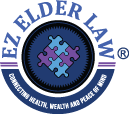
Government Bonds are debt instruments issued by a government entity. The most common form of government bond owned by a Medicaid applicantis U.S. Savings Bonds. Savings bonds are not transferrable. They can only be sold back to the government. If they are owned solely by the applicant or the applicant’s spouse, they are countable. However, […]

